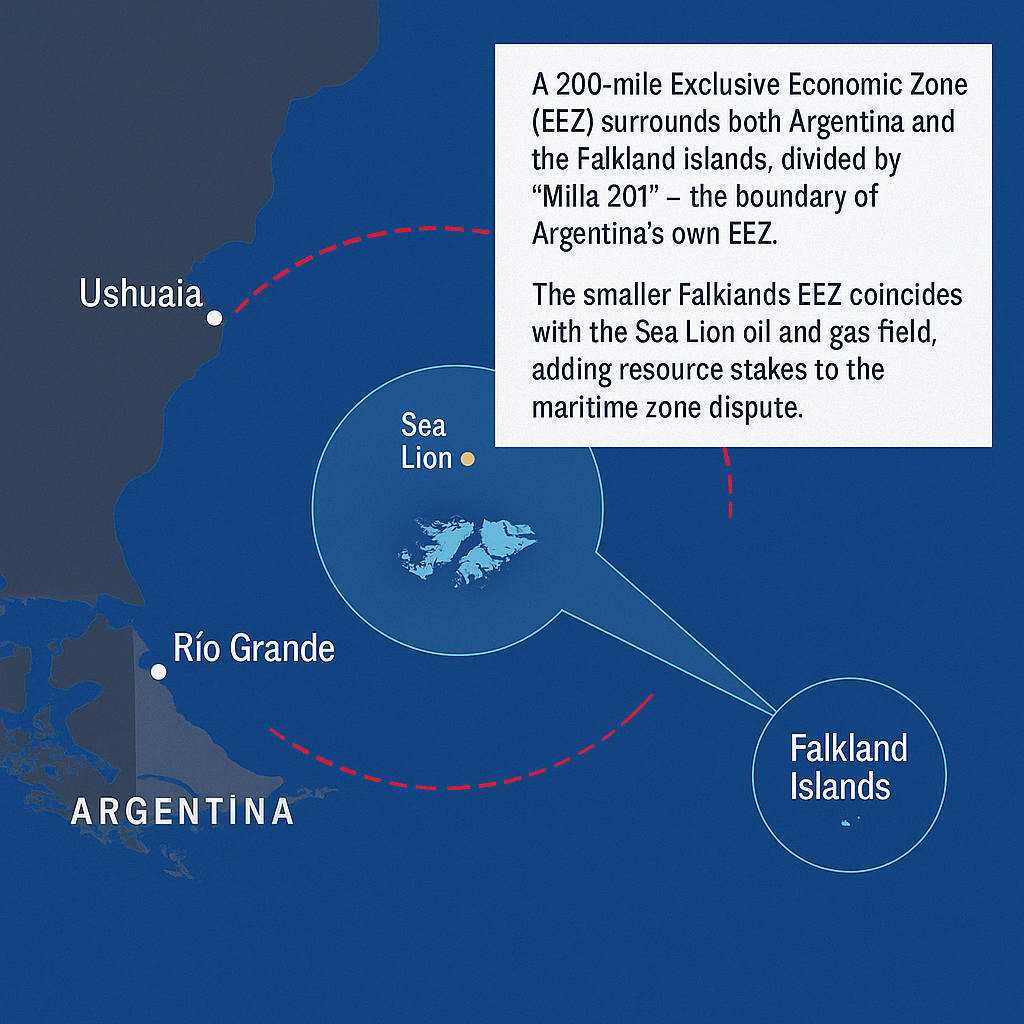Javier Milei and the Triumph of Austrian Economics in Argentina
It was a landslide and it was narrow at the same time. With about 40.7 percent of the national vote and a knife edge flip of Buenos Aires province, Javier Milei and La Libertad Avanza turned the mid term elections into a verdict on his economic program. The map shifted across the interior. Córdoba, Santa Fe, and Mendoza moved with him. The win is real, and the mandate is cautious, because turnout slipped to about 67.9 percent, the lowest since 1983. What follows is the story of why he won, which is the story of his ideas, and how those ideas are now reshaping Argentina.
On the night of the count the mood in the capital was relief mixed with resolve. Supporters spoke of a turning point. Critics warned that the hard part still lies ahead. The president promised a great Argentina and then went back to work. Markets did not wait for speeches. The local equity index jumped more than twenty percent in the first session after the vote. Dollar bonds rallied strongly. By mid week some of those gains eased, but prices remained well above the levels seen before the ballots were cast. Traders were not cheering the noise. They were betting on a change in the way Argentina runs its economy.
The argument that carried the campaign can be summed up in one line. Prices must be free to move, money must be sound, the state must step back, and enterprise must lead. In the months before the vote the government cut ministries, pared subsidies, and closed loopholes that had fed chronic deficits. It moved from permanent emergency to a plan. Inflation began to fall from its extreme peaks. Not fast, and not evenly, but enough to create a sense that a long spiral was finally slowing.
His opponents tried to frame the election as a referendum on pain. They said the program would favour the few and bruise the many. In the end the map said something else. The swing to La Libertad Avanza was strongest in the provinces where the old model had offered promises without growth. The left did not vanish. It retreated. It will press again in Congress and in the streets. But it could not stop the vote that mattered.
Austrian economics in context
Austrian economics begins with people and the choices they make. Value is subjective. What a good is worth depends on what an individual is willing to give up for it. From that simple point the school builds a set of claims about prices, money, capital, and the role of the state.
Prices are messages. They carry information that no planner can collect in full. When governments fix prices or flood the system with cheap credit, those messages get garbled. Capital is time bound. Interest rates reflect how much people prefer a good today to that same good tomorrow. When money is made too cheap for too long, firms start projects that only make sense under those cheap conditions. Later, when reality returns, those projects fail. This is the classic Austrian account of the boom and the bust.
The policy stance that follows is spare. Keep money sound. Let prices move. Keep the state small and the rules clear. Allow entry, allow failure, and allow learning. Use the budget to pay for essential functions, not to manage demand. The school is sceptical of the idea that complex models can steer an economy through fine tuning. It trusts the process of discovery in markets more than the judgement of a ministry.
There is a caution as well. Transitions hurt. The school has often been stronger on logic than on the measurement of social strain in the short run. Any reform that removes hidden subsidies and price controls will shift burdens and will do so unevenly. The success of the project therefore depends on pace, on clarity, and on how quickly new jobs and investment can fill the space that old policies leave behind.
Milei did not meet these ideas in office. He taught them and argued for them long before he took the oath. He names Menger, Mises, Hayek, and Rothbard in his speeches. He quotes them in interviews. He says that prices are information and that intervention distorts that information. He says that monetary discretion leads to abuse and to inflation that punishes the poor most of all. He ran on that language. He governs in it too, although practice must contend with politics and with the simple fact that Argentina has obligations to meet in foreign currency and a currency of its own that has to find a credible path.
The central open question is the exchange rate and the monetary regime. Since April the peso has traded inside a moving band. The central bank shifts the edges of that band each month. Inflation has often outrun the movement of the band, which blunts the adjustment and leaves pressure at the top of the range. The treasury needs dollars to meet payments that come due in 2026. Buying those dollars supports reserves but weakens the peso. That tension will not disappear until the regime is rebuilt. A full float with clear inflation targeting would be simpler. Full dollarisation would be harder still and would yield a different set of constraints and risks. The president has signalled that he wants to end discretion and end confusion. The path he takes will define the next year.
How the program won votes
First, it offered coherence after years of drift. People do not need degree level theory to sense when money loses value and rules make no sense. They live it each time they try to price a bag of cement or a litre of milk. A plan that says the budget will balance and the currency will not melt has its own plain power.
Second, it gave agency back to firms and workers who felt trapped by permits, tariffs, and taxes that changed every season. When rules are simple and stable, investment is not a slogan. It is a calendar of plant upgrades and new hires. Even the expectation of simpler rules can start a cycle of orders and contracts. That is why the market move after the vote matters. It turns an idea into a price and that price into a signal that reaches a factory floor.
Third, it matched discipline with a certain kind of empathy. The president often speaks in sharp terms, yet he has softened his tone since taking office. In the election night speech he invited any party with points of agreement to work with him. In the week after the vote he met provincial governors who hold real power. This is not a coalition of friends. It is a coalition of interests. That is how reforms are passed in Argentina.
Congress remains the arena that matters most. Only half the lower chamber and a third of the Senate were renewed, so the government still needs partners. The victory gives it a veto shield, which changes the bargaining table. The opposition can block some things. It cannot force the treasury to spend in ways that would break the program. Governors in the farm belt and in energy provinces now read the same numbers that traders do. They know that if the government gets a clearer monetary path and a simpler tax code, they will get investment and jobs. They also know that if the peso slips again and inflation roars, there will be no credit and no patience. They will deal.
Washington added a further layer. The United States provided a large swap line and bought pesos directly in the weeks before the vote. That help steadied the market when the local currency tested the edge of its range. It came with an implicit message. Keep the program tight and the support will remain. Loosen it and do not expect the same care. No one in Buenos Aires confuses a swap line with growth. It is a bridge, not a destination. But it was a bridge at the moment the project needed one.
The ideas, translated into daily life
A shopkeeper in La Matanza looks at the wholesale list and does not have to guess the rule for next week. A farmer in Santa Fe orders fertiliser knowing that import paperwork will not change between the order and the ship. A coder in Córdoba takes a job with a foreign client because the currency rule is legible and the tax on the invoice is not a moving target. These are small scenes, but they are how a model turns into growth. The Austrian school speaks of discovery by entrepreneurs. Discovery is not a speech. It is a thousand decisions that make sense because prices make sense.
None of this denies cost. Removal of subsidies raises some bills before wages rise to meet them. Cuts to public payrolls change lives. The state cannot be shrunk on paper alone. It must be reshaped in reality. That process is hard. It must be matched by an acceleration of private hiring and fresh investment or the social patience that made the vote possible will fade. This is the hinge. If the government can move quickly to clear labour rules and simplify taxes while it clarifies the monetary path, then the private side can pull more people into formal work. If not, the story will turn and it will turn fast.
Why then did he win. Because the policy spoke to experience and not only to ideology. Because enough voters chose discipline over drift. Because investors and provincial leaders saw a credible route to lower inflation and better growth and decided to give it a chance. Because even those who do not love the president feared a return to the old spending habits more than they feared a new plan.
There is a pattern in Argentina. Parties that win mid terms often lose the presidency two years later. That pattern is now the enemy of this project. The way to break it is to turn a rally into a recovery, to move from a budget surplus on paper to investment on the ground, and to move from a slogan about freedom to a daily reality in which rules are simple, money is predictable, and work pays. The government has the votes to block a return to the past. It does not yet have the votes to write the entire future. That is the work of the next season.
A final note on what the win means
The election was about personalities on the surface and about policy underneath. The president won because a critical share of the country decided that free prices, a smaller state, and clear money give them a better chance than managed prices, a growing state, and money that melts. The first benefits are visible in the market screens and in the confidence of firms that are ready to invest. The lasting benefits will be measured in the inflation print, in the number of formal jobs, and in whether a young family can plan without fearing a sudden loss of purchasing power. If those numbers move in the right direction, the ideas that carried this vote will carry the next one too.
You might also like to read on Telegraph.com
Javier Milei’s Austrian Economics Experiment and Argentina’s Struggle With Inflation, Austerity and Reform
An in-depth look at Milei’s effort to remake Argentina’s economy using ideas drawn from the Austrian School and the political risks of shock therapy.
Milei’s Malvinas Gambit and Britain’s Test of Resolve
Examines how Milei’s rhetoric on the Falklands issue reframes Argentina’s foreign policy and challenges Britain to respond without reopening old wounds.
The Cracks in Washington’s Backyard: Latin America Turns Away from the Monroe Doctrine
Explores the shifting balance of power in Latin America and why Argentina’s new direction under Milei fits a wider regional realignment.
Argentina – Telegraph Online
A continuously updated page collecting recent coverage on Argentina’s politics, economy, and international standing.
Research and Sources
With thanks to the Mises Institute for its open library of primary works and research papers that provided background for this article. The Institute’s archives of Mises, Hayek, Rothbard, and other scholars were invaluable in tracing the development of the Austrian School and its influence on contemporary policy in Argentina.
Glossary
- Subjectivism: value comes from individual preference; prices reflect many separate choices, not a planner’s design.
- Praxeology: Mises’s logic of purposeful human action, which studies the motives and consequences of choice rather than aggregates.
- Price signals: Hayek’s insight that market prices communicate dispersed information across society; controls and subsidies distort that communication.
- Capital structure: production unfolds through time and depends on interest rates that signal real scarcity and patience.
- Business cycle theory: cheap credit produces a boom of unprofitable projects which end in correction; the cure is sound money and clear rules.
- Crawling bands: a managed currency corridor that widens over time; useful in transition but risky if inflation moves faster than the band.
Primary reporting and Spanish-language explainers
- La Nación on Milei’s Austrian inspiration and the return of economic liberalism in Argentina. Read
- Infobae opinion on Austrian ideas versus Argentina’s long history of monetary controls. Read
- El Cronista reports on the crawling-band exchange rate, reserves, and market expectations. Read
- Reuters en Español coverage of the IMF program, swap lines, and volatility in 2025. Read
Authoritative reference explainers
- Britannica entry on the Austrian School of Economics and its major thinkers. Overview
- Investopedia summary of Austrian economic principles and history. Read
Books and classic works
- Carl Menger, Principles of Economics (1871)
- Eugen Böhm Bawerk, Capital and Interest (1889)
- Ludwig von Mises, The Theory of Money and Credit (1912)
- Ludwig von Mises, Human Action (1949)
- Friedrich Hayek, Prices and Production (1931)
- Friedrich Hayek, The Road to Serfdom (1944)
- Friedrich Hayek, “The Use of Knowledge in Society” (1945)
- Israel Kirzner, Competition and Entrepreneurship (1973)
- Murray Rothbard, Man, Economy, and State (1962)
- Murray Rothbard, America’s Great Depression (1963)
- Jesús Huerta de Soto, Money, Bank Credit, and Economic Cycles (1998)
Consolidated Tweets: Javier Milei and the Triumph of Austrian Economics in Argentina’s Midterm Elections
Below is a collection of relevant X (Twitter) posts discussing Javier Milei’s midterm election victory, his economic reforms, and Austrian economics themes. Each tweet is embedded for easy viewing.

View Tweet

View Tweet

View Tweet

View Tweet

View Tweet


View Tweet


